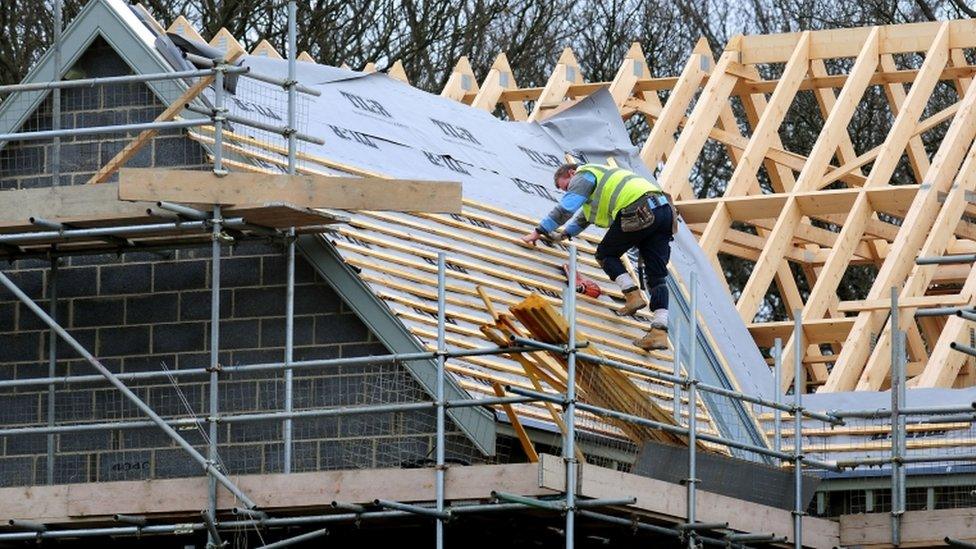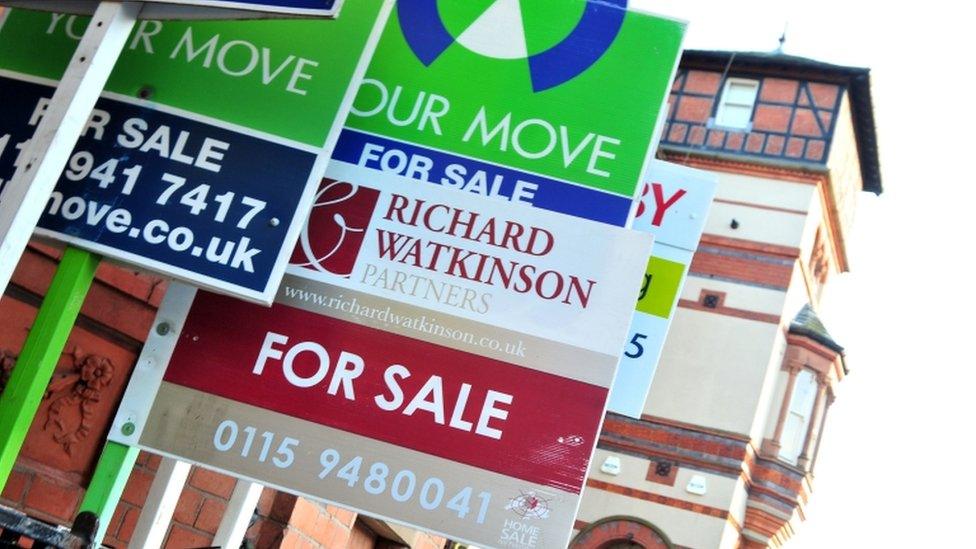Brexit and housing: Radical ideas wanted
- Published

A million homes by 2020 to deal with Britain's housing crisis - that was the government commitment made just last month in the Queen's Speech. But what chance now?
Department for Communities and Local Government (DCLG) ministers say it is business as usual - but it plainly isn't.
The controversial Housing and Planning Act, external, which gained Royal Assent just a few weeks ago, still needs both Houses of Parliament to give "affirmative approval" to rules on the sale of high-value council properties to fund right to buy, external.
Parliamentary and ministerial time is going to be at an absolute premium as departments try to deal with the massive fallout from Brexit.
And even if the DCLG pushes ahead with the policy, some are asking what's the point?
Five changes to your finances following the vote
Why can't Britain build enough homes to meet demand?
How will the extension of Right to Buy actually work?
We know we are going to get a new prime minister within a few months, one who will have rather more pressing priorities than regulations on the definition of high-value homes.
There may be a general election this year or early next, in which case all bets are off.
And much of the act - starter homes and right to buy in England for instance - is predicated on a belief that private builders will build and bankers will lend.
With shares in house-builders having fallen off a cliff since the result of the referendum, and banks likely to pull in their horns during the enormous uncertainty of a post-Brexit Britain, the housing crisis just became a whole lot more critical.
Secretary of State at DCLG Greg Clark and Housing Minister Brandon Lewis are meeting housebuilders on Thursday, when, I'm told, they will be talking about "achieving shared ambitions and assuring the sector that the government is committed to existing housing commitments".
The department says: "Ministers will be keen to hear the views of those attending, as well as their questions and ideas." It is likely to be a lively affair.
The chancellor warned house prices would fall at least 10%, external in the event of a Brexit vote, a warning that may actually have been an encouragement to vote Leave for some of those priced out of the housing market. However, that silver lining may have been a mirage.
Housing ladder
It's still very early days, but if the supply of new homes stalls, as most expect, and if banks also become more cautious in their lending on mortgages, then the chances of getting on the housing ladder will diminish for millions.
The fundamentals underneath the government's ambition of one million new homes by 2020 are broken.
Many thought the commitment was hopelessly ambitious even before Brexit.
Now, very few in the sector imagine they will get even close.

House prices are expected to fall in the wake of the Brexit vote
Given the new environment we are all living in, people are beginning to talk about some kind of emergency response to the housing crisis.
If the private sector won't build the houses Britain so desperately needs, then what about the state?
The European Investment Bank has confirmed that a £1bn loan for social housing in the UK agreed in April will still go ahead, external despite the vote.
That is good news.
But it is only a drop in the ocean, and that source of cheap finance may soon disappear.
In trying to mitigate the disappointment and anger that the economics of Brexit could mean for many younger and poorer people in Britain, in the short to medium term at least, a commitment on making housing more affordable could be very important.
If rents continue to climb faster than incomes (and it looks very likely they will in much of the country), and if the opportunity to buy is reduced by lack of finance and supply, then senior figures in the housing sector are arguing it makes sense to look at some sort of emergency house-building programme underpinned by the Treasury.
Councils could have their borrowing rules loosened, allowing them to get capital for sub-market price homes.
Housing Associations could be promised extra grants.
And central government could even start building houses directly - as the previous coalition began to do in a very small way at Northstowe in Cambridgeshire.
It is not business as usual.
It is it not even just a bit different.
The economic and political rulebooks have been torn up.
There is an opportunity for the kind of radical thinking that many in housing have been demanding for many years.
- Published30 December 2020

- Published29 June 2016

- Published29 June 2016

